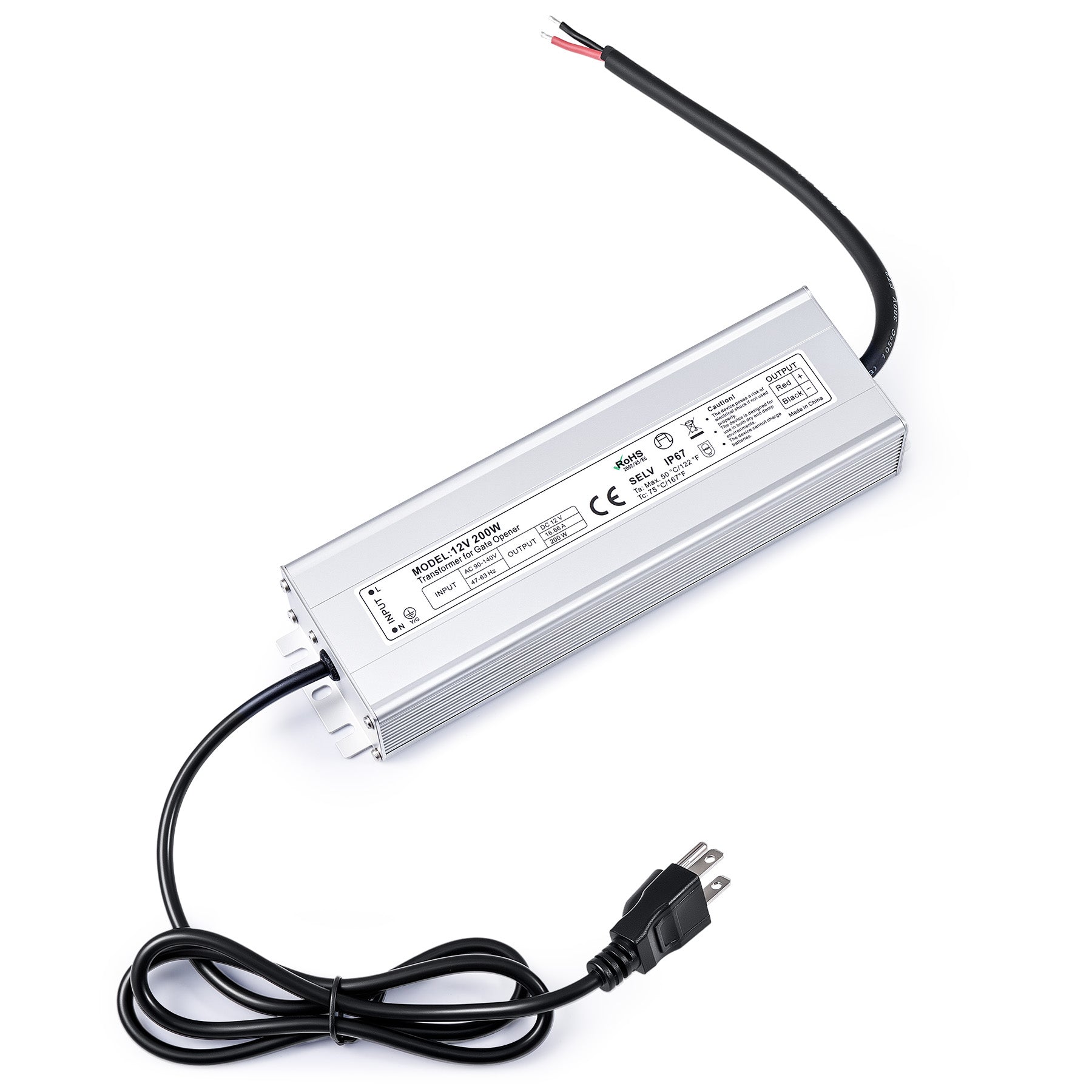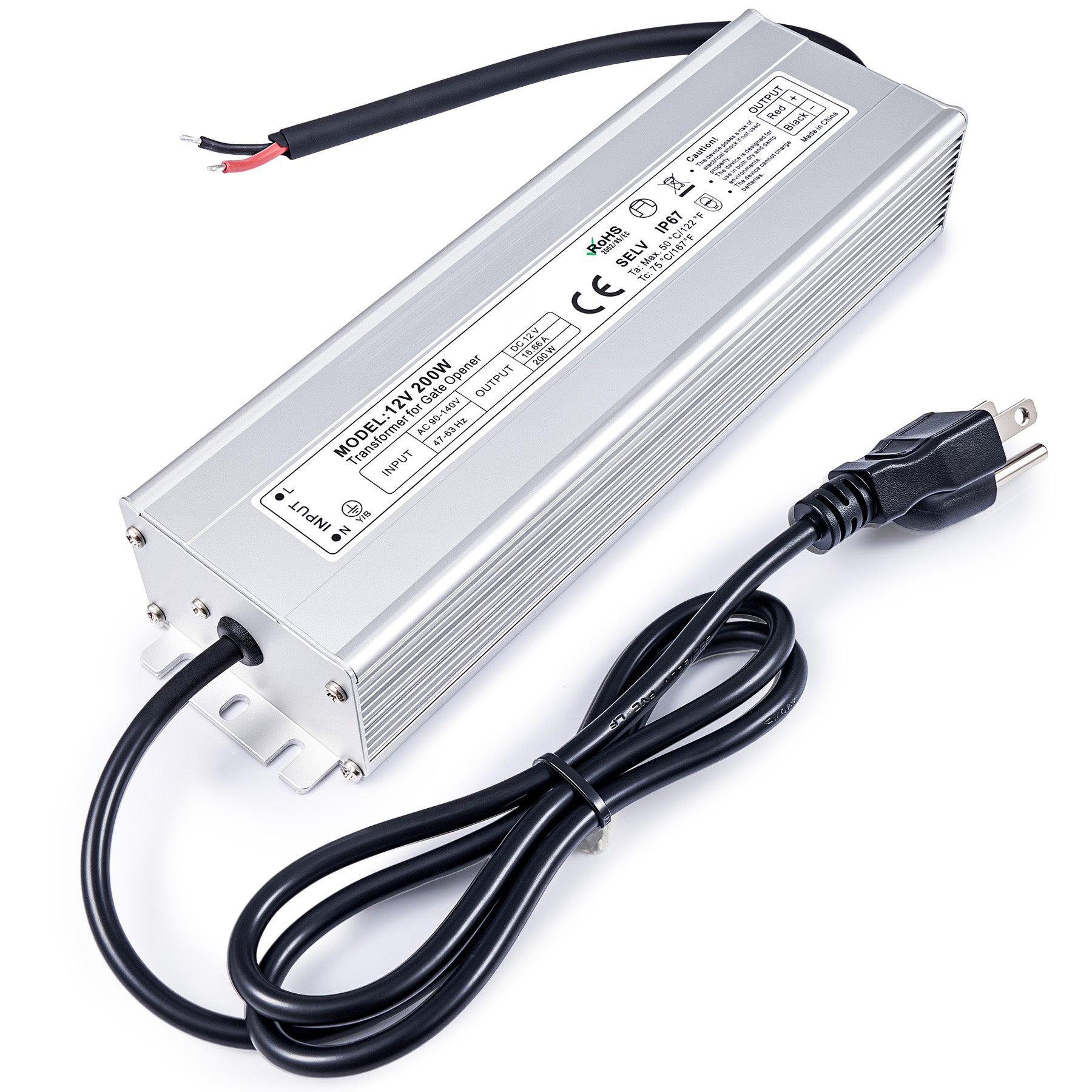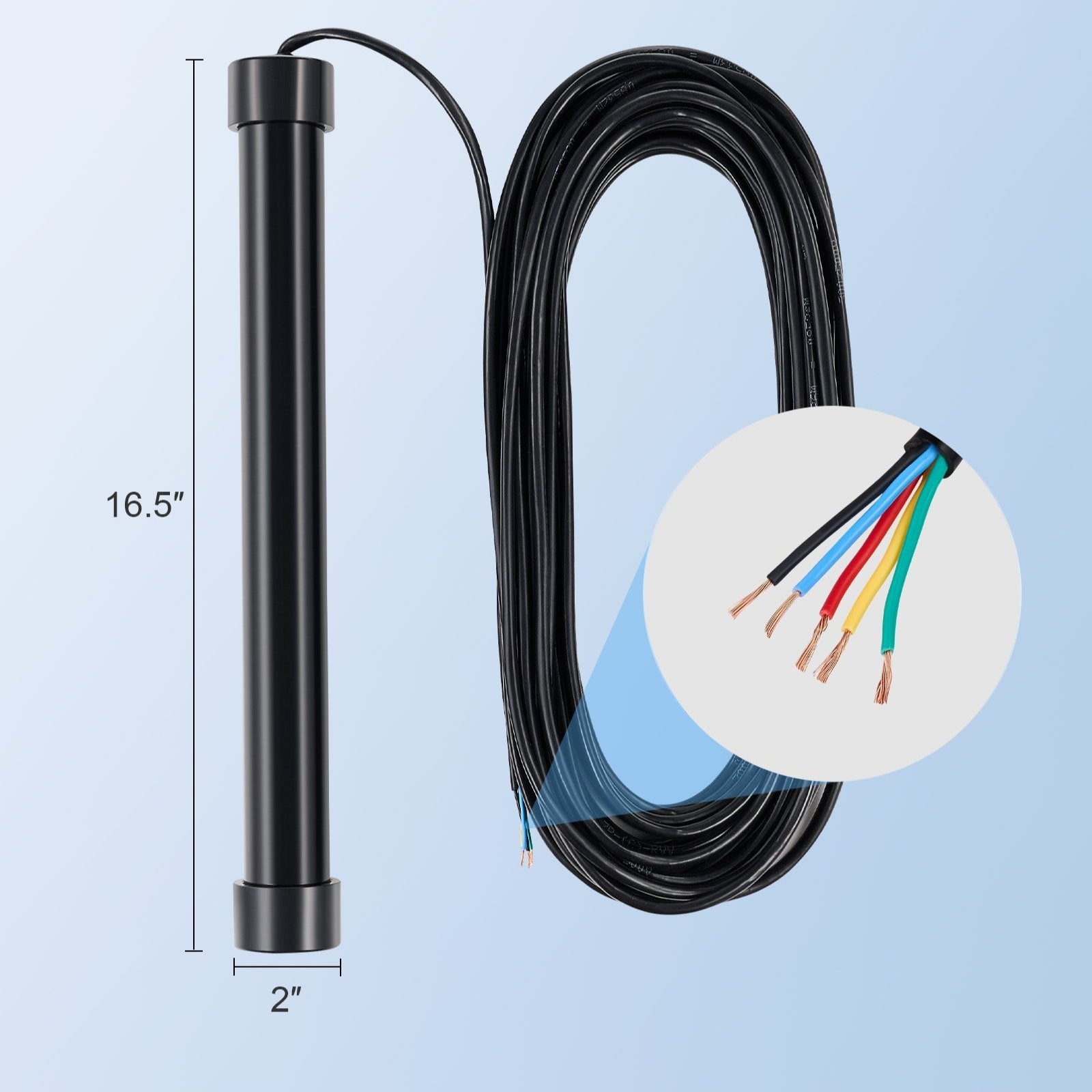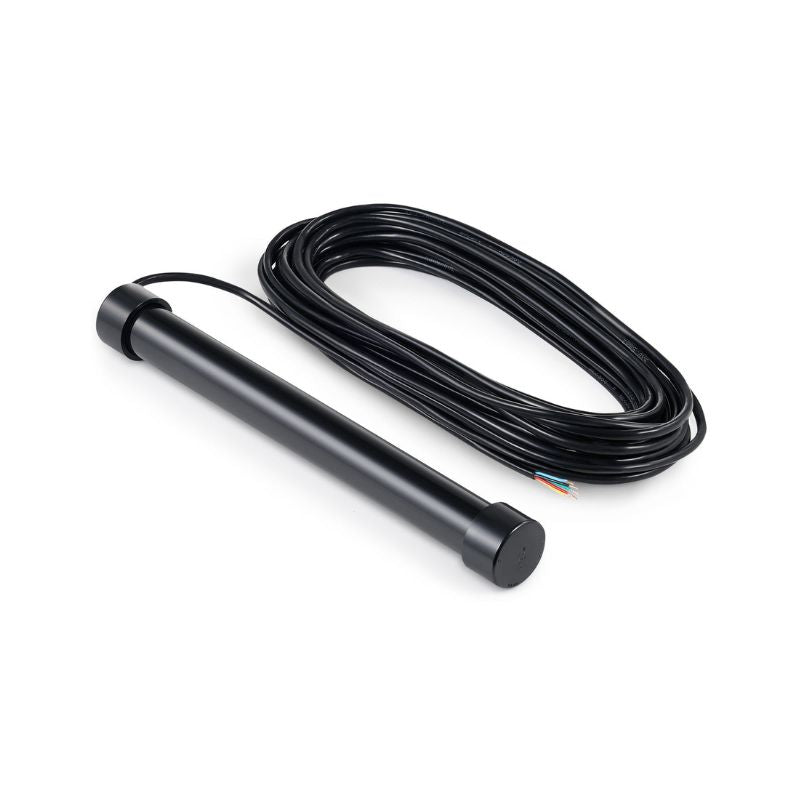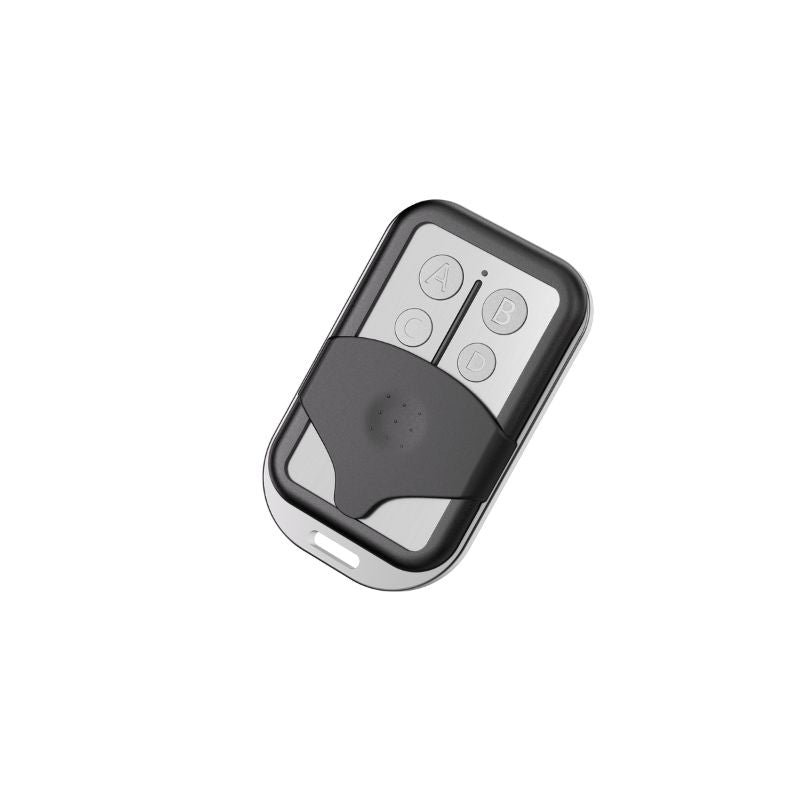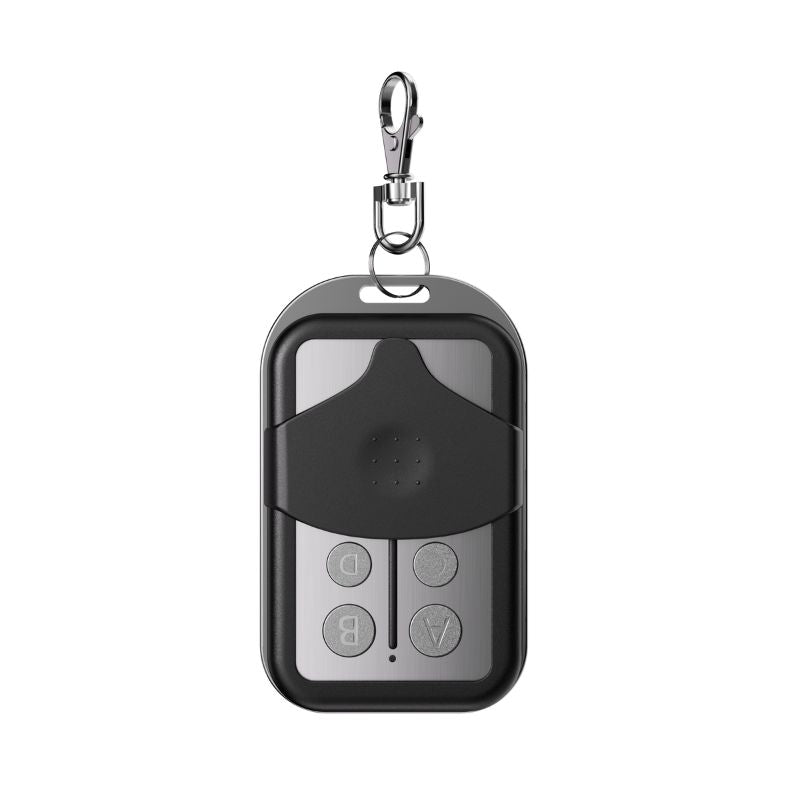A gate opener and a garage door opener are the same in that they are designed to open and close gates, but they are also fundamentally different in purpose, design, best uses, and manner of operation. As a result, it is not even possible to use one in place of the other.
However, it is possible to integrate both into a single gate opening system, but you need to understand their differences and how to pair them effectively.
Here’s a clear, detailed breakdown of gate openers vs. garage door openers. Will cover what they are, how they differ, how they work, which one you’d need depending on your setup, and what you need to pair them together.

Gate Opener vs. Garage Door Openers: Differences
1. They Open Different kinds of Doors
The main difference between a gate opener and a garage door opener is that they are designed for different types of doors. Gate openers are designed for opening driveway gates, while garage openers are designed to open and close overhead garage doors.
Most driveway gates are swing gates, while most garage doors are overhead doors: the two vary in size, structure, and design, and cannot be used interchangeably.
2. Differences in Types
Gate openers and garage doors also differ in types. While there are only two major types of gate openers, there are over four different types of garage door openers.
There is much more variety when it comes to choosing a garage door opener that fits your door and home aesthetic than choosing a gate opener.
| Gate Opener Types | Garage Door Types |
| Single Swing Gate Openers | Chain drive garage doors |
| Double Swing Gate Openers | Belt Drive Garage Doors |
| Screw Drive Garage Doors | |
| Wall-Mount/Jackshaft Garage Doors |
3. Different Opening mechanisms
There are major differences in the operating mechanisms of gate openers and garage door openers. Gate openers operate with electric motors, solar power, wireless keypads, and safety sensors.
Garage door openers operate with ceiling-mounted motors, tracks, and torsion springs, and rolling codes for security.
These operating systems are different, have different installation requirements, and are often incompatible with each other.
| Gate Opener Opening Mechanism | Garage Door Opening Mechanism |
| Electric motors (AC or DC) | Ceiling-mounted motors |
| Solar power (optional for remote locations) | Tracks and torsion springs |
| Wireless keypads/remotes | Rolling codes for security |
| Safety sensors to avoid hitting cars or people | MyQ or similar smart integrations |
3. Power Source
Gate openers are more flexible when it comes to power sources than garage door openers. Modern automatic gate openers can be powered by electricity, solar, or battery power.
Garage door openers are much more limited in that they must be connected to the power grid, and not all models allow battery backup.
| Feature | Gate Opener | Garage Door Opener |
| Power Options | Hardwired, solar, or battery backup | Mostly hardwired, with some battery backup |
| Remote Locations | Ideal (solar power possible) | Needs a close power source |
4. Installation Location
Gate openers are installed at the driveway entrance, which is typically outdoors. Being exposed to the elements, they need to be weatherproof and durable.
Garage door openers are installed at the entrance to the garage, which is typically indoors and protected from the elements.
As a result, gate openers are much more durable, tougher, and more expensive than garage door openers.
5. Security, Access, and Cost
While gate openers are designed to provide security and access to the entire home, garage door openers are designed for the security and access of the garage. As a result, the security features of a gate opener are much more numerous and formidable than the security features of a garage door opener.
- Gate Openers cost about $300-$2,000+, depending on size, motor strength, and features.
- Garage Door Openers cost $150- $500+, depending on type and brand.
| Feature | Gate Opener | Garage Door Opener |
| Entry Methods | Keypad, remote, intercom, smartphone app | Remote, wall control, smart app (like MyQ) |
| Common Security Tech | Rolling code remotes, obstruction sensors | Rolling code tech, camera integrations |
Can You Use a Gate Opener in Place of a Garage Door?
It is not possible to use a gate opener in place of a garage door opener because gate openers and garage door openers have differences in mechanical design, motor behavior, mounting, and safety. Here are four reasons why you cannot use the two interchangeably.
- Gate openers swing or slide horizontally, while garage doors lift vertically. These are completely different motion requirements, and they require different kinds of opening mechanisms
- Gate openers mount to gate posts and hinges, while garage openers mount on ceilings or side walls. Gate openers are not suitable for ceilings or door rails.
- Gate openers are typically stronger and slower (especially for heavy metal gates). May damage garage doors if repurposed.
- Gate openers use sensors to avoid crushing vehicles outside, and may not be safe indoors. Garage door opener sensors may be insufficient for big driveway gates.
Can You Use a Gate Opener and a Garage Opener in the Same System?
Though it is impossible to use a gate opener and a garage door opener interchangeably, you can still install both and integrate them into the same system.
If the gate opener and garage door opener are compatible and can be integrated into the same system, you would be able to open both with a remote control, coordinate them to open simultaneously, and receive notifications if (and when) either one is opened/closed.
How to Use a Gate Opener and Garage Opener in the Same System
When you're planning to use a gate opener and a garage door opener as part of the same system, it’s smart to think ahead about compatibility, convenience, and security.
Here’s a breakdown of the most important factors to consider when choosing both devices to work well together:
1. Remote & Control System Compatibility
- You must be able to control both openers with a single remote, keypad, or smartphone app.
- Look for brands that offer universal remotes or can be programmed to operate multiple devices.
- Consider smart systems (e.g., MyQ, Nexx, or Tailwind) that let you control them both via an app or voice assistant.
- Choose openers that support HomeKit, Google Assistant, Alexa, or IFTTT for automation.
2. Power Supply and Backup Options
You want both openers to function reliably, even during a power outage.
- For garage doors, most units are AC-powered, and some include battery backup.
- For gate openers, look for ones that support solar panels or have battery backup options.
- Use separate power sources if your gate is far from your house, or ensure cabling can handle the distance.
Best Practice: Ensure both systems are capable of running independently but are still coordinated. It might also benefit you to check out how much electricity an automatic gate opener consumes.
3. Smart Integration and Home Automation
Want to open both when arriving home? Or get notifications when either opens?
- Look for systems that integrate with smart home platforms.
- Use a smart controller that can send one signal to both openers at the same time.
- Enable geofencing (auto-open when your phone is nearby) for added convenience.
4. Safety & Security Features
You don’t want either access point to be a weak link.
- Rolling code remotes and secure wireless protocols protect against hacking.
- Motion sensors, auto-close timers, and cameras help protect both entry points.
- Use shared authentication methods (keypad codes, fingerprints, smartphone access).
Security Tip: Install cameras at both the gate and garage for full entryway coverage.
5. Opening Speed & Timing
You don’t want one opener lagging far behind the other.
- Garage doors usually open faster than gates.
- Some gate openers offer adjustable speeds or delay timers.
- Consider a sequential automation setup; open the gate, wait 5 seconds, then open the garage.
Advanced Option: Use a smart relay or automation routine to control timing between the two.
6. Distance Between Units
If the gate is far from the garage:
- Use long-range remotes or Wi-Fi extenders.
- Choose openers with good wireless signal ranges or antenna add-ons.
- Consider low-voltage wiring if hardwiring controls between the units.
Networking Tip: If Wi-Fi doesn’t reach your gate, you can add a 4G LTE hotspot or mesh system.
Choosing Zumi Gate Openers for Your “Unified System” Checklist?
Zumi gate openers tick nearly all the necessary boxes for a smart, secure, solar-capable gate opener, and you can use Zumi for your gate and another compatible opener for the garage.
For fully unified control, you'd want to pair Zumi with a garage opener that either:
- Offers universal remote compatibility
- Integrates into a smart home hub that can import Zumi controls (though Zumi doesn't currently publish an open API).
| Feature | Zumi Gate Opener | Notes |
| Remote/App Compatibility | Zumi app & remote; rolling-code security | Great for controlling your gate via phone |
| Smart Home Integration | Supports HomeKit/Alexa | Has broader smart home ecosystem support |
| Power Backup | Battery + solar-ready | Excellent for power reliability |
| Security Sensors | Safety sensors, auto-stop features | Meets gate safety standards |
| Brand Ecosystem | Fairly easy | Can integrate with garage systems |
| Wireless Range | Up to ~164 ft | Good for suburban properties |
| Automation & Timing | Supports geofencing and app control | You can auto-close/open, but a manual sync is needed |
If you’ve got, or if you want to install, a Zumi gate opener, here’s how to integrate it well with your garage system:
- Choose a garage opener with smart control, ideally one that supports MyQ, Nexx, or HomeKit.
- Use geofencing with Zumi for hands-free gate opening.
-
Sync garage opener with the same phone automations—e.g., using automations like:
When the gate opens, open the garage after 5 seconds. - Consider a smart home hub (Home Assistant, Hubitat) to manage notifications, schedules, and toggles from one dashboard.
Summary
Zumi gate openers are solid: secure, solar/battery-powered, and app‐driven. They fit most of the unified system criteria, except cross‐brand app/hub integration.
You’ll have the best experience using Zumi alongside a smart garage opener and possibly adding a smart home hub for true synergy.
Here are 5 Zumi Gate Openers you can afford





